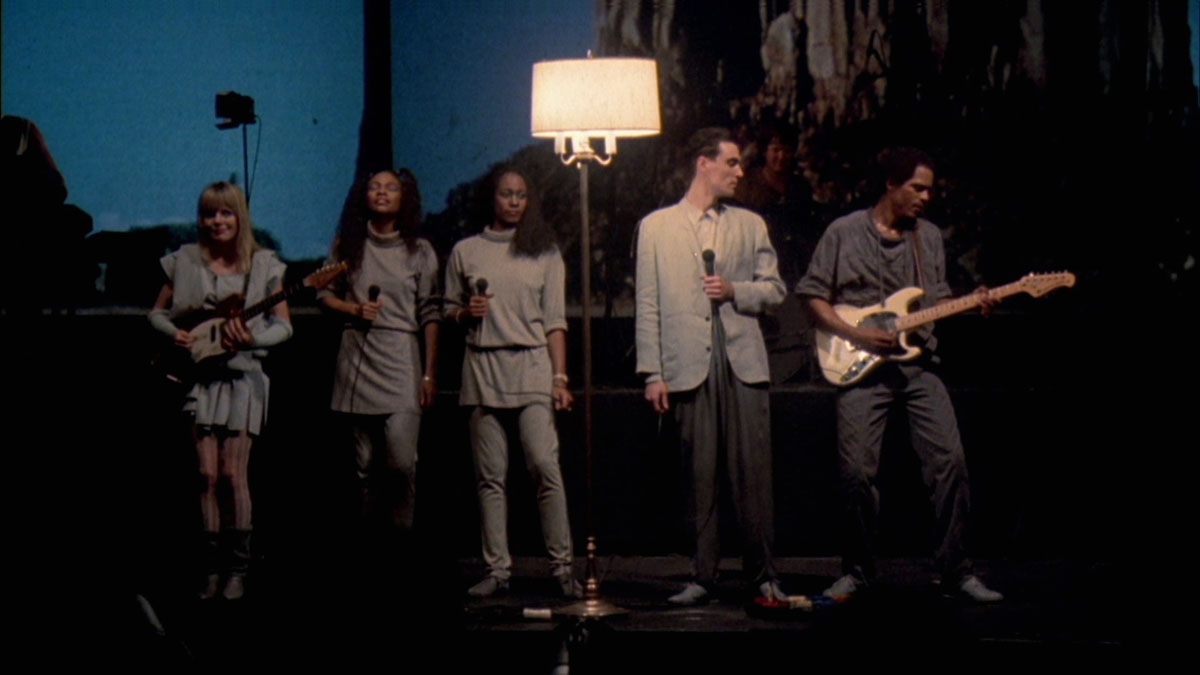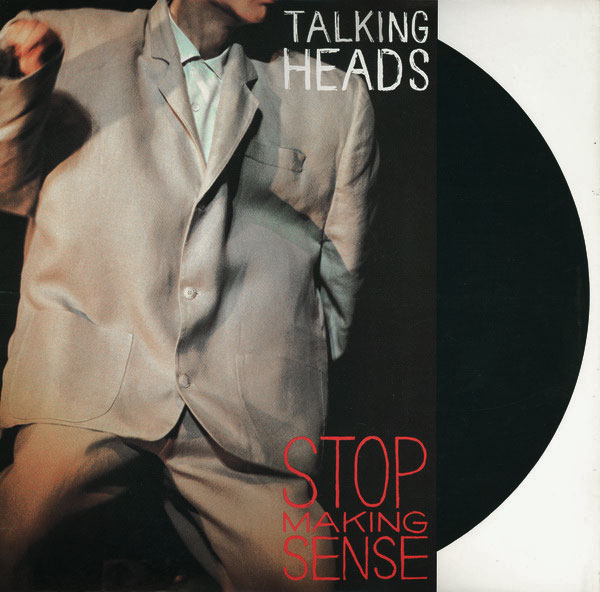Stop Making Sense
How a Talking Heads album became the unofficial anthem for a generation of students at Reed College.
It’s the Saturday before Renn Fayre. Everyone crams into the SU. The movie never starts on time, but when it finally gets rolling, we stomp the battle-scarred wooden floor just a little too soon before David Byrne strums the opening flourish of “Psycho Killer.” The momentum builds as the band plays “Heaven,” and we link arms and sway back and forth. When they perform “Once in a Lifetime” we shout in unison, “My god! What have I done?” No place on earth is louder.
To me, a wide-eyed, socially anxious freshman witnessing it for the first time in 2010, Stop Making Sense—the Reed dance party-cum-quasi-religious ritual named after the iconic film of the Talking Heads in concert—seemed like a tradition that stretched to the dawn of time. Of course, like all traditions, it does have a starting point. And it might come as a surprise to students and young alumni that the tradition is only about 15 years old.
It started in 2002, when philosophy major Harold Gabel ’03 rented a copy of Stop Making Sense. “Right away I was enthralled,” he remembers. He did some reading about the film. “One of the things that really grabbed my attention was these stories about when it was first released,” he says. “There was a trend of spontaneous dance parties breaking out in the cinemas…. And I thought, ‘who says I can’t make that happen again?’”
With help from Erik Cameron ’05 and Ashley Bowen-Murphy ’05, Harold put up some flyers, stuck a keg in a corner of the SU, and held the first screening during spring reading week. “We didn’t actually have a movie screen,” Erik recalls. “We just lashed together a bunch of bedsheets and strung them from the book loft.”
As soon as the event got going, says Harold, “We had people dancing, people literally swinging from the rafters.” The party kept happening, year after year, eventually becoming a tradition.
The music of the Talking Heads does have deeper roots on campus. Keith Allen ’83 says the band was the soundtrack to his time at Reed. He remembers being stopped in his tracks hearing “Take Me to the River” in the SU for the first time one night in 1979. About 25 years later, he was back on campus as an alumnus. “I walked through the same door of the SU… and some current students have hooked a laptop to those same damn speakers and they’re playing ‘Take Me to the River.’” It was, he says, “a moment of intense connection. The music never stopped mattering, and it’s one of those things that ties us together across generations.”
For younger alumni, the music has become synonymous with Reed. “It reminds me of being around friends, all the people I met at Reed,” says Jeremy Lawrence ’12. “It transports me back to a moment of just pure joy, of being surrounded by people I love.”
Lawrence once had to pull a car over when the Talking Heads came on the radio, “because I was going to start crying.” While Stop Making Sense conjures up joyful memories, hearing it out of context can feel like a punch in the gut. Especially, he says, “if you’re not sure if it’s ever going to be the same.”
Why does this particular music tie Reedies together so powerfully? Gabel muses that “the way the film is structured, it’s kind of primed for a ritualistic engagement.” Lawrence attributes it to the event itself: “I think for [younger Reedies] especially, there are less opportunities to hear the music, so it becomes so strongly associated with that event.”
Somehow, that doesn’t quite pin it down. As the title suggests, there’s an undercurrent of irrationality to Stop Making Sense. The film’s power is impossible to explain in words—except, perhaps, David Byrne’s. “This Must Be the Place” is a love song to a person, but I’ve heard it, since that night my freshman year, as a love song to Reed:
Home is where I want to be
But I guess I’m already there
I come home, she lifted up her wings
I guess that this must be the place
I doubt I’m alone.
Tags: Reed History

